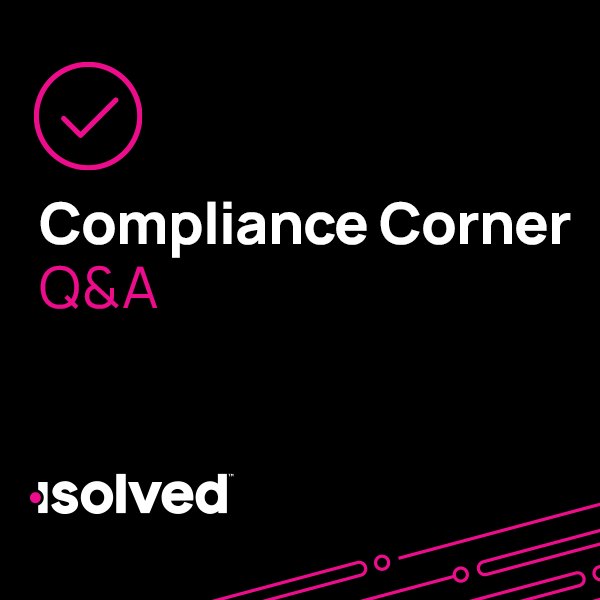October Compliance Corner: The Value of Conducting Stay Interviews
Tuesday October 31st, 2023
Estimated time to read: 2 minutes, 30 seconds

We are used to hearing the term exit interview where HR surveys departing employees regarding the reasons why they left—maybe this was money, benefits, career progression or something else. The goal of the exit interview is to collect this data not to save that employee, but to improve the experience for other employees who are still with the company. And it is good practice to collect this data. Perhaps this was an employee that you had in mind to grow within the company but neglected to communicate that and now the employee left to take a leadership role with another company.
Stay Interviews instead take place with current employees to understand why employees stay with the company, what might cause them to leave and what they value about their jobs. The goal of stay interviews is to retain the employees you have while also increasing employee engagement and trust between employees and managers through these conversations.
When should stay interviews take place?
In the current labor market, employers must be proactive to retain the top talent they have. Employers can’t wait until 10 percent of a given department, or even of the entire organization, has left. Instead, groups should consider implementing stay interviews to engage employees and do what they can to make their company a top workplace, not only retain the current workforce but to recruit future employees.
What best practices can HR teams use to prepare for stay interviews?
Sure, you can do a quick google search to come up with some questions and have managers begin meeting with employees, but more preparation can go a long way. As with any initiative, it is best to have management’s buy-in and support. To gain buy-in and support, numbers and metrics are a powerful tool. Having metrics such as turnover rate, cost per hire, and time to hire amongst others can go along way to ensure management support.
The management team is a great starting point to pilot the process to determine what went well or what could be modified, while at the same time having these conversations with some of the most important people on your team.
Before completing stay interviews for your management team, HR teams should develop some basic questions to ask every employee, along with some possible follow-up questions to dig deeper. Then you can start putting together a template to be used by managers to provide consistency.
Lastly, it is important to train and coach managers performing the stay interviews to ensure there is a return on the time and energy put forward.
How should stay interviews be conducted?
These interviews should not feel like an interrogation. You want to allow for open and honest communication between the employee and the manager. Yes, the manager should have a list of questions to ask and should be taking notes, but you want to ensure that you are getting as much out of them as possible.
You want to ensure that managers are doing more listening than talking. Managers should try to dig deeper into answers to get to the bottom of any underlying issues by asking for examples or an open-ended follow-up question. Listening and asking thoughtful questions will help build a level of trust with the employee that will allow stay interviews to be a productive tool for ongoing employee engagement.
What should HR teams do with this information?
Once the stay interviews have been completed, each manager should reflect on the results for their department. They should consider what they are doing well and what they could do better to provide a desired workplace. Ultimately, these results need to come back to HR and the management team to determine what can be done within the organization as a whole. It could be something as simple as holding more frequent company-wide meetings with improved communication or allowing more flexible time-off programs that fit the needs of the employees. Regardless, there should be some follow-up from these meetings. Demonstrating a commitment to making things better will go a long way with employees.
Need a team to assist with completing your essential HR tasks? Discover how isolved HR Services can help.
About Casey Walters:

Casey is part of isolved’s HR Services team and has more than ten years of experience in HR. His areas of expertise include employee relations, performance management, benefits management and safety. Throughout his career, Casey has worked within the manufacturing, marketing, medical, banking and finance industries.
